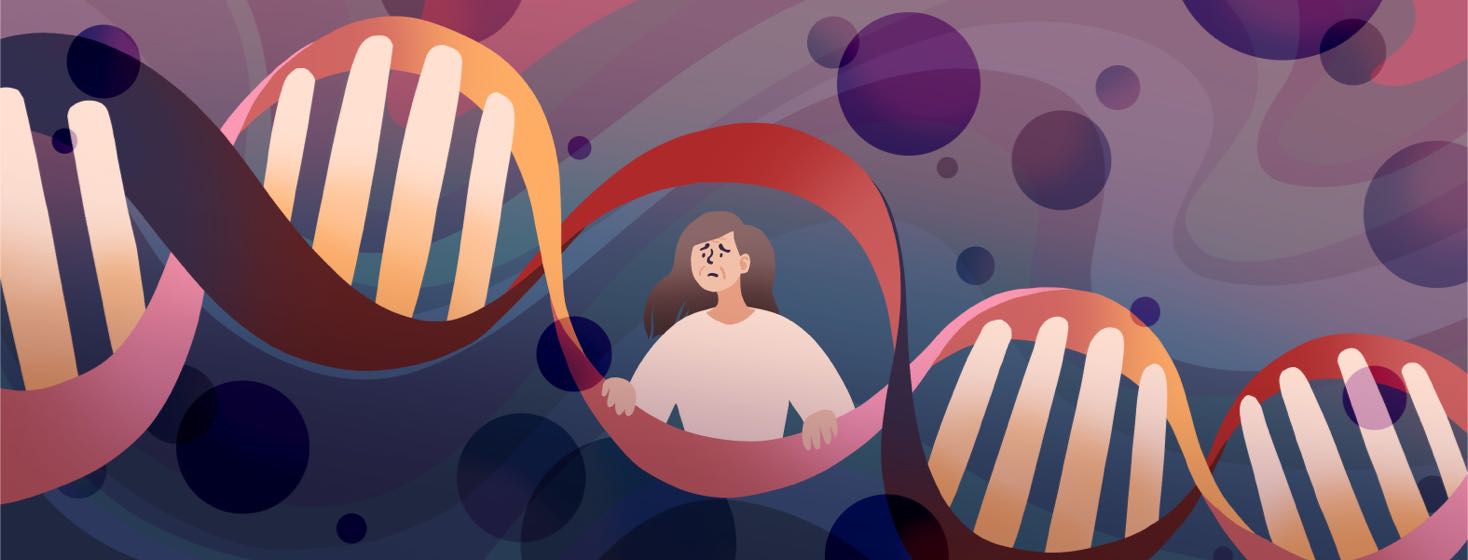Genetics and Bladder Cancer: A Family Affair
Bladder cancer is the sixth most common cancer in the United States, and the number of new cases continues to rise each year. Bladder cancer is more likely to affect men than women. It develops slowly, and the average age of diagnosis is 73 years.1,2
Experts know that there are some environmental risk factors linked to bladder cancer. However, there is also a genetic link that needs to studied further.1,2
What are the risk factors for bladder cancer?
Environmental risk factors are substances in your environment that may make you more likely to develop a certain health condition. The known environmental risk factors for bladder cancer include:2
- Cigarette smoke
- Chemicals in certain workplaces
- Contaminants in drinking water
Cigarette smoking is the leading cause of bladder cancer. It is responsible for half of all bladder cancer cases. Cigarette smokers are up to 5 times more likely to develop bladder cancer than non-smokers.2
Another risk factor may be genetics. Some research suggests that bladder cancer runs in families. People with a family history of bladder cancer seem to be more likely to develop it even if they have not had the same environmental exposures. Researchers have estimated that those with a family history of bladder cancer are twice as likely to develop bladder cancer.1,2
How does family history affect bladder cancer risk?
A 2021 study found that people who have a first-degree relative with bladder cancer are 80 percent more likely to develop bladder cancer. A first-degree relative is a parent, brother or sister, or child. This study also found a link between bladder cancer risk and two or more family members with a history of any cancer.1
The most common types of cancer linked to increased bladder cancer risk were:1
- Cancers related to tobacco use
- Uterine and cervical cancer
- Melanoma (a type of skin cancer)
The study found a strong link between increased bladder cancer risk and having siblings with cancer. This risk was mostly linked to brothers with bladder cancer and sisters with other types of cancer.1
Bladder cancer and specific genes
Genes are passed from parents to their children and carry information for specific traits. All humans have about 20,000 genes in their DNA. Genetic testing looks for changes in your DNA called variants. This type of testing can tell you about your risk for a genetic condition. It can also tell you about your risk for developing cancer based on specific genes.3,4
Research has found specific genes that may be linked to a higher risk for bladder cancer. A 2021 study looked at 20,000 genes to find variants that may not have been previously studied. It linked several variants to a higher risk for bladder cancer.2
For example, the genetic variant CHEK2 was found to be 10 times higher in people with bladder cancer. These findings suggest a need for more research. The results of this study show how complex the relationship between genetics and bladder cancer risk is.2
What does this mean for people with a family history of bladder cancer?
If you have a family history of bladder cancer or any other type of cancer, consider visiting a genetic testing specialist. A specialist can help you get the right genetic tests and help you understand what the results mean.4
Genetic testing can tell you whether you have genetic variants. And it can give you information about whether other family members may be at risk.4
You can also focus on changing risk factors that increase your risk of bladder cancer. Make these changes as early as possible. If you can, quit smoking and change your work location if it exposes you to toxic chemicals.

Join the conversation